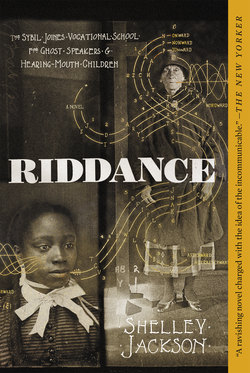Читать книгу Riddance - Shelley Jackson - Страница 21
На сайте Литреса книга снята с продажи.
Оглавление2. The Final Dispatch, contd.
Someone is missing, a child is missing, calamity, havoc, ruination, snatch her back, fetch her home, remember her, recover her, save her!
These words pl pulse through me, urging me onward, and yet they have no meaning.
Save her? From death? It’s life that’s the emergency. Death is the haven—sequined bough to which the sparrow homes, beetle’s duff and worm’s earth, whale’s harpoonless hiding place. This I teach. Maybe a little too well: my kids go early and eager. It is a lie that only a Munch (rhymes with lunch) could believe, that my students are driven by the rigors of their training to destroy themselves; though I am rigorous. Death is not departure but arrival. We are latchkeys kept by wanderers against a future homing. With our last strength, we fit our bodies into this locked world, and turn.
But this time, when I saw the barrel rolling, heard the oiled pins click, I stuck a stick in it. Dove after her, howling to the shades to hold her back.
Her who?
[Static, sound of breathing.]
Finster. Eve Finster, that must have been her name, the girl I sought. Unless it was another girl, but I don’t know who, but it might have been.
Ahead, I glimpsed her narrow shoulders twisting in her pus-yellow organdy, what nonsense, her black linsey-woolsey, a little scorched, as she wriggled trout-like through the [inaudible]. Then she and I alike were lost in din and tumult to fetch up here, that is, nowhere, that is, in the land of the dead.
White everywhere, complicating into color, into form, fading again to white. White sky. White plains onto which white cataracts thunder down from an impossible height: souls, pouring without surcease into death, and roaring as they fall. The cataracts—the one stable landmark, the one feature on which all travelers report—are in such incessant motion that they seem immobile: one immense hoary figure, frozen in place, head bowed. Sometimes a bulge travels down the length of it: a fire in a shirtwaist factory, a great ship sunk in icy waters, a [word indistinct].
But my business is not with the deluge, but with the one drop that does not belong here. To find her is the problem. Like all children she is changeable as thought, passing through form after fugitive form—newt, spoon, little toy car. She does not remember who she is. So I remind her. “Finster!” For a moment her name imposes order on the flux and I see her. Then she changes.
I lower a bucket to scoop her up, this bucket here, which is enameled red and emblazoned fire and has a crescent of clean water swinging and ringing around the bottom, and is a bucket I made to catch her in, am making now, as I describe it. For I too make my changes, but with method. The bucket comes up dry and different, oaken staves and rusted hoops and a fly on the cracked rim rubbing its hands. But I recognize her, think I do, in the fly, which flies; I follow. Road, I propose, and a road pours out of me. She is a tiny black speck against the, say, warm brown dust. A net, I suggest, and raising it, stride toward the speck. Dust rims the stiff black hem of my skirt. I bring down the net. She scoots away: wind-up mouse, thistledown, cloud.
I gather my resources, my pitons and plotlines, grammar hooks and grapnels, and go after her. The cloud, a small ground-loving one, leaves the road for a path I do not know (I who thought I made all the paths), her own path, thread-thin and tangled, through dendrite forms that one might call trees, in an optimistic mood. I feel something unfamiliar: Fear? Delight? I plant the butterfly net by the path; call it a mailbox, one of a battalion of mailboxes pertaining, mostly, to cranks and hermits, and frequently upset by hooligans; and the path widens to a road.
I know this road. It veers off fromt he from the Cheesehill post road, drops into a ravine and burrows down it through sunless, scrubby, undistinguished woods until it emerges into marshy flatlands dotted with copses and thick with thistles, where already in the distance one may catch glimpses of a gabled roof, stately trees, outbuildings. So now I know where we are going. Where else? I follow.
Green-gray grublike bouncing things that are not dogs bark regardless and keep pace with us through the trees that are not trees. I call my rabbits, the ones with beaks opening red all over their bodies, with wings in their mouths for tongues, with tongues in their fur for wings, these flying, crying, dangerous rabbits that are not rabbits, my protectors. They do battle with the dogs that are not dogs, harrying them toward the hills, the familiar hills of Cheesehill and vicinity now rising like dough at my say-so to enfold both dogs and rabbits, which vanish, for the time being. Time that is not time. Being that is not being.
The what—who—yes, the child [pause] races on, no cloud now, just a child in a pus-yellow, no, a black school uniform, a little scorched, and I after her.
Why do I not let her go? [Static, sound of breathing.]
Really, when one considers the question rationally one does not have to look far for an answer. Obviously, one does not wish to misplace a student under the evaluative eye of a Regional School Inspector. And under circumstances that, under circumstances, under—
Someone is missing, a child is missing, calamity, havoc—
Are you receiving?
